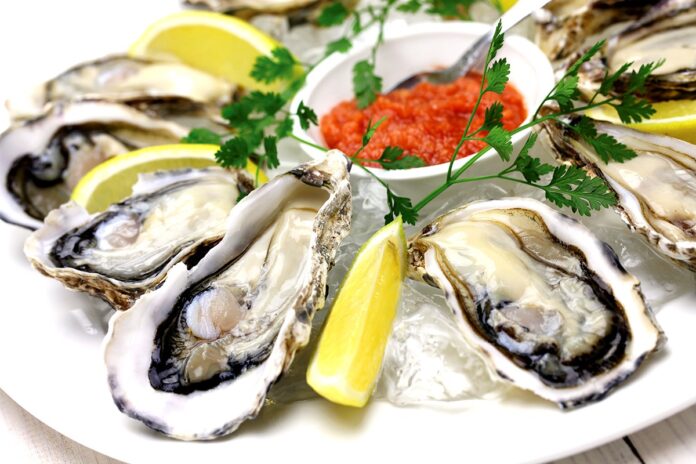Testosterone is an important hormone that promotes everything from bone health to brain function, mood, and s3x drive, says Kristin Gillespie, M.S., R.D.
Since testosterone plays a role in so many functions of the body, not producing enough can be hazardous to our health.
It can cause everything from reduction in muscle mass, energy deficiency, irritability and reduced concentration, hair loss, and brittle bones.
Below, we highlight nine foods that are likely to improve your testosterone levels.
1. Fatty fish
“High-fat fish, like salmon, are rich in many nutrients that help with hormonal health and homeostasis, including vitamin D, zinc, and omega-3 fatty acids,” says Gillespie.
Research has linked these healthy fats and vitamin D, which are abundant in fatty fish, with increased testosterone levels.
2. Leafy greens
Have you got your kale fix today?
“Because these greens are such nutritional powerhouses, it shouldn’t come as a surprise that they contain key nutrients for maintaining testosterone levels,” says Gillespie.
“Spinach, kale, and collards can help promote optimal testosterone levels. The key micronutrient in this case is magnesium, which has been linked to higher testosterone levels due to prevention of oxidative stress.”
3. Eggs
“Eggs are another food that can help maintain testosterone levels as a result of their rich nutrient profile. The key nutrients in this case are the healthy fats, which offer a similar benefit to fish, and selenium,” says Gillespie.
“Selenium acts as an antioxidant and, thus, helps to prevent oxidative damage similarly to magnesium. It is important to note that the most nutritious part of the egg is the yolk, so one must consume whole eggs to maximize the benefit.”
READ ALSO: Four spices you should add to your meals to ensure longevity (Photos)
4. Avocados
“Rich in healthy fats and magnesium, which we’ve established as having a pro-testosterone effect, can also help regulate testosterone levels,” said Gillespie. “In addition to these nutrients, avocados contain boron, which may also impact circulating testosterone levels.”
5. Pomegranate
“Pomegranates are rich in flavonoids—antioxidants that have been shown in animal studies to boost testosterone production,” says Kim Yawitz.
Just note: animal study.
If you’re looking to add pomegranate juice to your diet, take care that it’s 100 percent pomegranate juice with no added sugar. “You can also add pomegranate arils to smoothies, salads, yogurt, oats, and even roasted veggies,” Yawitz says.
6. Ginger
“In animal studies, ginger supplements have been shown to bring about several anatomical and physiological changes that lead to increased testosterone production,” says Yawitz.
7. Oysters
“Oysters have several key nutrients that are thought to increase testosterone, including zinc,” says Yawitz, elaborating that zinc supplements are sometimes used to treat low testosterone, either alone or in combination with medications. “But there’s a catch: Supplements appear to be effective only in men with a zinc deficiency (which is rare).”
With that in mind, Yawitz says that it’s possible that eating more foods that are high in zinc could support hormone health. “A three-ounce serving of oysters has 32 milligrams of zinc, which is more per serving than any other food,” she says.
8. Garlic
Early nutrition studies have found that there’s a link between garlic supplementation and an increase in testosterone levels in rats. Again, though, we caution—correlation in animal studies does not necessarily mean the same is true in humans. The findings have been repeated in later studies. There is potential that it could be true in humans, but more research would need to be done to confirm.
9. Broccoli
Broccoli extract has been seen to significantly increase testosterone levels when compared to a control group and caraway extract, according to a 2021 study published in Cryobiology. A similar study published in 2022 in Theriogenology showed a significant increase in testosterone while broccoli supplementation in rats. We’ll say it as many times as we need to, though: animal studies don’t inherently mean the same is true in humans.




